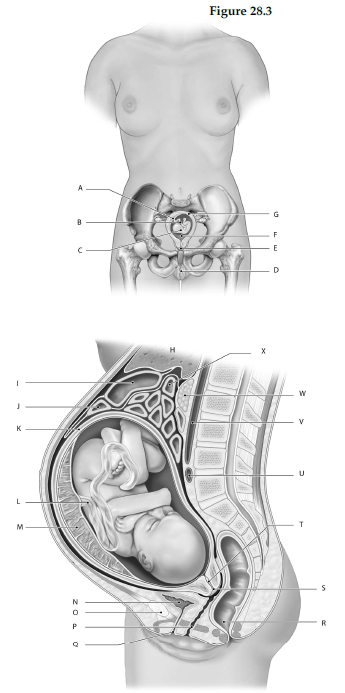Which of the following descriptions best fits the acid-base disorder respiratory alkalosis?
A) consequence of hyperventilation, for example in fever or mental illness
B) consequence of prolonged vomiting
C) consequence of reduced alveolar ventilation, for example due to COPD
D) consequence of tissue hypoxia, for example in ischemic conditions
Answer: A
You might also like to view...
Which organs produce hormones associated with increased intestinal calcium absorption?
A. Stomach, small intestines, liver B. Skin, liver, kidney C. Stomach, liver, kidney D. Small intestine, liver, skin E. Pancreas, small intestine, kidney
Using the figure below, identify the labeled part.

1) Label A: ______________________________
2) Label B: ______________________________
3) Label C: ______________________________
4) Label D: ______________________________
5) Label E: ______________________________
6) Label F: ______________________________
7) Label G: ______________________________
8) Label H: ______________________________
9) Label I: ______________________________
10) Label J: ______________________________
11) Label K: ______________________________
12) Label L: ______________________________
13) Label M: ______________________________
14) Label N: ______________________________
15) Label O: ______________________________
16) Label P: ______________________________
17) Label Q: ______________________________
18) Label R: ______________________________
19) Label S: ______________________________
20) Label T: ______________________________
21) Label U: ______________________________
22) Label V: ______________________________
23) Label W: ______________________________
24) Label X: ______________________________
Vasogenic shock is triggered by widespread ____________________ of blood vessels
Fill in the blank(s) with correct word
The presence of a cellular clock, presence of "death genes," and damage to DNA or mitochondria are all hypotheses of ________.
A. aging B. death C. cleavage D. differentiation